After the massacre of Sheikh Mujib, his family and aides in 15 August 1975 and of four prominent Awami League leaders on 3 November 1975 nobody was officially held accountable. In fact, the alleged killers enjoyed prominent diplomatic position under successive government.
It was not until Sheikh Hasina, the elder daughter of Sheikh Mujib, came into power for the first time in 1996 that the case was initiated. During her second term in government five of the alleged 12 killers were found guilty and hanged on 28 January 2010 - 34 years after the murder. Six fugitives are still wanted, whilst the seventh died naturally abroad.
Recap of killing
On 15 August 1975, four years after Bangladesh's independence, a group of army officers entered President Sheikh Mujibur Rahman's private residence on Dhanmondi Road 32 house and opened fire. They killed him along with his wife, three sons, two daughter-in-laws and approximately 20 other relatives and aides as part of a military coup.
Sheikh Mujib's daughters, Sheikh Hasina Wazed and Sheikh Rehana were spared as they were in Germany during the time of killings.
The group cited Sheikh Mujib's 'corruption and dictatorship' as the reason behind the massacre. The military decided not to court-martial the army officers who masterminded and participated in the coup. No case was registered with the police, by relatives of Mujib or his party men, either.
Three months after Sheikh Mujib, his family and aides' massacre four influential Awami League leaders were jailed and killed in high-security Dhaka Central Jail on 3 November 1975 allegedly by some of the coup leaders. The four leaders were vice-president Syed Nazrul Islam, prime minister Tajuddin Ahmed, ministers M. Mansur Ali and A H Muhammad Quamruzzaman.
Hours after the Central Jail killings the murderers reportedly fled to Libya (in northern Africa) following a counter-coup and the establishment of martial (military) law.
Kondaker Mushtaq Ahmed - once a a close political associate of Sheikh Mujib and a cabinet Minister, now accused of being one of the people responsible for plotting the events that led to the killings - succeeded Sheikh Mujibur Rahman as president. As part of his changes he introduced the 'Indemnity Act' on 26 September 1975 which provided the killers of Sheikh Mujib and his family with immunity as they were prevented from being tried in the court of law. When Ziaur Rahman became President his Fifth Amendment to the Constitution of Bangladesh on 9 April 1979 made this indemnity act 'valid' and acceptable.
Awami League win 1996 election and begin Bongabondhu murder case proceedings
In June 1996 general elections the Awami League won the majority seats and its leader, Sheikh Hasina Wajed, was sworn in as Prime Minister after the BNP government resigned and a caretaker governmet was appointed to oversee the election. Former Chief Justice Shahabuddin Ahmed was elected President.
Immediately after coming to power Pradan Montri Sheikh Hasina Wajed announced that the suspected killers of her dad and family members would be arrested and brought to trial.
Special Powers Act (SPA) to prevent alleged killers escaping
Amid reports that some ex-army officers allegedly connected with the killings in 1975 had left the country soon after the Awami League came to power, the government reportedly instructed the police to arrest those still in the country under the Special Powers Act (SPA) which provides for administrative detention on broadly formulated grounds.
The government’s swift use of the SPA on coming to power created discomfort within the legal community in the country even though many supported in principle the move to try the killers of Sheikh Mujibur Rahman and his family members. Some observers saw it as a major departure from a position declared by Sheikh Hasina Wajed who, when in opposition, had termed the SPA a "black law" that should be removed.
Farooq, Shahriar & Khairuzzaman arrested
On 13 August 1996, three ex-army officers were arrested and sent to the Dhaka Central Jail. They were Lt Col (Rtd.) Syed Farooq Rahman, arrested from his Dhaka Old DOHS home, Lt Col (Rtd.) Sultan Shahriar Rashid Khan, who was on active diplomatic service abroad and returned upon the foreign ministry's request only to be arrested later, and Maj (Rtd.) Khairuzzaman.
They were issued with a detention order under the SPA for 30 days. Bangladesh Police said their arrests followed intelligence reports that the three had been involved in acts of sabotage and that searches of their homes had uncovered firearms, duplicate Bangladeshi passports and foreign currency. Police said criminal investigation relating to the alleged possession of illegal items had begun against all the accused. The lawyers of all three challenged the detention but by late November police were investigating the Sheikh Mujib & Central Jail killing cases and on that basis refused to release the prisoners.
However, many believed that investigation on these charges may have been a measure to keep the accused in detention while the government was preparing a bill to lift the legal barrier against their trial in the Sheikh Mujibur assassination case, the Indemnity Repeal Act.
Meanwhile, the government announced that there was no legal barrier to the investigation of the jail killing of the four leaders on 3 November 1975 as the Indemnity Act was formulated prior the jail killings.
Char neta killing file found & Taheruddin, Zobaida and Mohiuddin arrested
In late September 1996, police officials stated that a CID (Criminal Investigation Department) officer had found an official file containing documents relating to the jail killings. They said the file contained important information including statements by the then Inspector General of Prisons Nuruzzaman and his deputy, Khandaker Abdul Awal which were made on 5 November 1975. The police confirmed they had received permission from the Chief Metropolitan Magistrate to re-open the case and were holding the three prisoners (Farooq, Shahriar & Khairuzzaman) on suspicion of involvement in the jail killings too.
On 3 October 1996 former state minister Taheruddin Takhur was arrested in connection with the jail killings and Sheikh Mujib's assassination case. A month later on 3 November 1996, Zobaida Rashid, wife of Lt Col (Rtd.) Khandaker Abdul Rashid was arrested from her home in Dhaka on charges of possessing her husband’s firearm and involvement in the killing of Sheikh Mujibur and his family members. Her husband, Khandaker Abdur Rashid, one of the accused left Bangladesh fearing an Awami League win in the 1996 election. He went in hiding abroad, reportedly shuttling between Pakistan and Libya.
Zobaida's lawyer argued that the weapons recovered had legally-obtained licenses, that she had not been involved in the assassination at all, and that she was being "held as a hostage by the government for securing the surrender of her husband".
On 19 November 1996 police announced that Lt Col Mohiuddin has been placed on a seven-day CID remand in connection with the 15 August 1975 and 3 November killings.
FIR names 14 people with conspiracy to murder
The first official announcement by police that the killing of Sheikh Mujib and his family members would be investigated came several weeks after the arrest of the three prisoners, Farooq Rahman, Shahriar Rashid Khan and Khairuzzaman.
Police announced that a First Information Report (FIR) has been filed on 2 October 1996 by Mahitul Islam, resident personal secretary to President Mujibur Rahman at the time of the coup, against 14 people whom he accused of involvement in the killing of Sheikh Mujibur Rahman and his family members. The case was filed under Sections 120 (criminal conspiracy), 302 (murder), 34 (all persons liable for acts done by several persons in their assembly), 149 (all persons liable for acts done by one person in their assembly), 324 (voluntarily causing hurt by dangerous weapons), 307 (attempt to murder) and 109 (abetment) of the Bangladesh Penal Code. If found guilty, some of these charges carry the death penalty.
The accused included:
- Khandaker Mushtaq Ahmed, ex-President
- Taheruddin Thakur, ex-information minister in the cabinets of both President Mujib and President Mushtaq, already detained
- Lt Col (relieved) Khandaker Abdur Rashid, whose wife Zobaida was detained
- Lt Col (relieved) Sultan Shahriar Rashid Khan, already detained
- Lt. Col (relieved) Farooq Rahman, already detained
- Lt. Col. Mohiuddin Ahmed, active in military service when he was arrested already detained
- Major Jalil
- Lt Col (retd) Mohammad Aziz Pasha, reportedly died in Zimbabwe before the commencement of trial
- Maj (relieved) Ahmed Shariful Hossain
- Capt (relieved) Kismet Hossain
- Lt Col (relieved) A M Rashed Chowdhury
- Risalder (retd) Moslehuddin alias Hiron Khan alias Moslemuddin alias Rafikul Islam
- Maj (retd) Bazlul Huda, brought back from Bankok, where he was serving sentence for shop lifting, as part of criminal exchange program between Thailand and Bangladesh
Most of the coup leaders, who had been given diplomatic assignments by successive governments, had gone into hiding and had subsequently failed to return to Bangladesh. The government sought the help of Interpol in tracking them down and sought extradition of some of the accused. At least two of the accused, Col (Rtd.) Faruq Rahman and Col (Rtd.) Khandaker Abdur Rashid had reportedly told foreign journalists about their involvement in the events.
Indemnity Act removed
Since it appeared that no one could be charged with these killings under Bangladeshi law because of the Indemnity Ordinance, Sheikh Hasina's government cleared the way of the trial by amending the Constitution of Bangladesh to abolish the Act, thereby allowing the killers to be bought to justice.
In 12 November 1996, the Parliament passed the Indemnity (Repeal) Act. The BNP and Jamaat-e Islami (two of the opposition parties) were absent during the vote but their presence would not have stopped the passage of the repeal act since the government has a clear majority.
The Indemnity (Repeal) Act was initially challenged in the High Court by the families of two ex-army officers charged with the killings. However, in January 1997, the High Court rejected their writ petitions. It maintained that since the Indemnity Ordinance had not been itself constitutional, its removal does not require a two-third majority as pointed out by the family.
The Indemnity (Repeal) Act, 1996 (Act No. 21 of 1996) is a valid piece of legislation and it is not ultra vires of the Constitution
Supreme Court of Bangladesh, High Court Division, Dhaka - judgment given on 28 January 1997
20 people officially named for killing Sheikh Mujib & co
In January 1997 the Criminal Investigation Department prepared a chargesheet in relation to the killing of Sheikh Mujib and his family members. Police officials said the charges were being brought on the basis of the 2 October 1996 FIR as well as their interrogation of the detainees. It named twenty people that they felt participated in the killing.
In addition to the 14 named in the FIR, the remaining six were: Capt Hon Abdul Wahab Joarder (already detained), Begum Zobaida Rashid (already detained), Lt Col (retd) S H M B Noor Chowdhury, Lt Col (relieved) Shariful Huq Dalim, Maj (relieved) S K M Mohiuddin Ahmed, Capt Hon (retd) Nazmul Hossain,Capt (retd) Abdul Majed,Dafader Marfat Ali, Mohammed Abdul Hossain.
The chargesheet also named ex-President Khandaker Mushtaque Ahmed, Mahbubul Alam Chashi, Risalder Syed Sarwar Hossain, and Capt M Mostafa Ahmed as the accused, but they had all passed away. Seventy four other names appear as witnesses in the chargesheet.
On 20 February 1997, the six prisoners were presented to the court of Additional Chief Metropolitan Magistrate to record their confessional statements. Zobaida Rashid told the court that she had been forced by the police to sign a "confessional" statement under duress and withdrew that statement. She alleged that during her 9-day period in police custody in November 1996 she had been given electric shocks, was made to lie on a cold bare floor, and was denied sleep for prolonged periods. She was allegedly denied any medical treatment during this period. Amnesty International received several reports that an atmosphere of intimidation had been created during the hearing by Awami League supporters who had been shouting at the accused and disrupting the court proceedings. The government appeared to have taken notice of this and in March Bangladesh Attorney General, K.S. Nabi, said the trial of the six prisoners would be held in a court at the Dhaka Central Jail compound for security reasons. He said: "It is not a trial in camera, it is being held inside the jail only for security reasons". The Special Prosecutor Sirajul Haq said the authorities wanted everything about the trial made "public." [6]. Lawyers, journalists and some family members were reportedly allowed to attend the court after security checks by the police.
On 8 April 1997 five of the six prisoners appeared in court and pleaded not guilty. Zobaida Rashid - who was released on bail five days earlier - did not appear. Her lawyer told the court that she was ill and argued that she needed treatment for her medical conditions in an "open atmosphere".
Following several days of pre-trial hearings, the court set 21 April 1997 as the trial date after indicting the 20 alleged coup plotters. The judge told the defendants: "We are here to ensure justice of a murder case under the laws of the land and the accused will get maximum protection and facilities as far as the law allows."
Each of the 14 defendants yet to be captured were believed to have been appointed a lawyer by the courts to ensure they were defended at the trial.
Trial begins
On the first day of the trial on 21 April 1997, the trial was suspended after a "no confidence" application against the judge was moved by Zobaida Rashid’s defence lawyer. The High Court rejected the motion, saying it was not moved properly. Further suspension by both the defence lawyers and High Court would prolong the hearing for another month.
Death sentence given to 12 but they appeal
The long emotionally-charged trial ended on 8 November 1998, and death sentences by firing squad was given by the District and Session Judge of Dhaka Mohammad Kazi Golam Rasul to 15 out of 20 accused of the assassination.
Those sentenced include eight lieutenant colonels, three majors, three captains and one soldier.
They were:
- Lt Col (dismissed) Syed Farooq Rahman
- Lt Col (retd) Sultan Shahriar Rashid Khan
- Maj (retd) Bazlul Huda
- Lt Col (retd) Mohiuddin Ahmed,
- Lt Col (retd) AKM Mohiuddin Ahmed,
- Lt Col (retd) Khandaker Abdur Rashid,
- Maj (retd) Shariful Haque Dalim
- Maj (retd) Ahmed Shariful Hossain
- Lt Col (retd) AM Rashed Chowdhury
- Lt Col (retd) S H M B Noor Chowdhury
- Lt Col (retd) Md Abdul Aziz Pasha
- Capt (retd) Md Kismat Hashem
- Capt (retd) Nazmul Hossain Ansar
- Capt (retd) Abdul Mazed
- Risaldar (retd) Moslemuddin.
Four of the detained convicts (Farooq, Shahriar, Bazlul Huda, and Mohiuddin) appealed to the High Court against the verdict.
Taheruddin Thakur, former Information Minister and one of the prime conspirator, was found not guilty and released. He later died naturally in 2005.
Third High Court judge selects final 12 guilty of crime
On 14 December 2000 a two-member High Court panel made up of Justice Mohammed Ruhul Amin (Chief Justice of Bangladesh from 2007 to 2008) and Justice A B M Khairul Haque (current Chief Justice of Bangladesh) failed to agree on the verdict on all 15 convicts. Junior Justice Khairul Haque upheld lower court verdict made two years ago and retained death sentences by hanging for all 15 of the officers, whilst Senior Justice Ruhul Amin acquitted five for lack of evidence. These five were Mohiuddin Ahmed, Ahmed Shariful Hossain, Md Kismat Hashem, Nazmul Hossain Ansar, and Moslemuddin.
Since the two judges were split over the guilt of five others it became essential to get the verdict of a third judge. Justice Mohammad Fazlul Karim (immediate past Chief Justice of Bangladesh) was selected and on 30 April 2001 at the end of the nearly three-month long hearing he chose two convicts from the five - Mohiuddin Ahmed and Moslemuddin, and acquitted the other three of all charges. He delivered the judgement on Bangladesh's most politically sensitive case in a crowded courtroom, while hundreds of riot police surrounded the building.
Of the twelve found guilty only four were detained in Bangladesh prison - Farooq Rahman, Bazlul Huda, Sultan Shariar Rashid Khan and Mohiuddin Ahmed,. The others were fugitives abroad.
All four men appealed against the decision to the Supreme Court in the same year on the grounds that Sheikh Mujib's death was part of a mutiny and they should have been tried under martial law instead of through the civilian court system.
BNP government & caretaker government halt progress
Fate would take another turn in Sheikh Hasina's quest to punish her family's murderers when in 2001 general election her Awami League were ousted by her bitter rival Khaleda Zia's BNP. It was the BNP which ultimately benefitted from the coup as they took over the country for the first time. But their founder, Ziaur Rahman, ironically would too be killed by a group of rebellious army officers few years after Sheikh Mujib in 1981.
With the rule of the BNP the case fell into legal limbo, and the feuding between the two women and their political parties grew so vicious over the years that the military once again stepped in after the BNP term ended in 2006 and threw both Hasina and Khaleda Zia temporarily into jail in 2007.
It was during the rule of the caretaker government that on 7 August 2007 the murder case hearings resumed after six years in wilderness.
Hasina brings 12 year old trial to an end
Sheikh Hasina returned to power in 2008 after her Awami League won the general election, and made the conclusion of the trial one of her top priorities.
A fifth death convict, retired Lt Col (lancer) A K M Mohiuddin, was arrested on 18 June 2008 following a series of failed attempts to gain asylum or permanent residency in United States. He was deported by the US Homeland Security after a district court in California turned down his last appeal on 14 June. And like the four other long term detainees in Dhaka Central Jail, he too made an appeal to the Appellate Division of Supreme Court of Bangladesh from against the High Court's sentence.
Supreme Court of Bangladesh rejects appeal and uphold death sentence
Lawyers Abdur Rezzak Khan (representing Shahriar Rashid Khan), Abdullah Al Mamum (representing Bazlul Huda and A K M Mohiuddin), and Khan Saifur Rahman (representing Syed Faruq Rahman and Mohiuddin Ahmed) spent 29 days arguing for the clients. But on 19 November 2009 the five member special bench headed by Justice Mahammad Tafazzal Islam (later Chief Justice of Bangladesh in 2009) rejected the appeal of all five former army officers as they contained no new arguments and any legal grounds for reviewing. The counsel of the convicts reiterated points that had already been argued during the hearing of their appeals against the High Court verdict. The death sentence was upheld.
Before the verdict, approximately 12,000 extra policemen were deployed to guard strategic buildings, including the Supreme Court, to prevent any attempt to disrupt the proceedings by the convicted men's supporters. The men's supporters have been blamed by the government for a grenade attack on one of the prosecution lawyers in October 2009, although no one was charged.
Law Minister Shafique Ahmed told reporters that as per jail code, the jail authorities should execute the convicts between the 21st and 28th days after the trial court issued death warrants against them. The death warrants were issued on 3 January 2010 and the countdown started the same day - this meant the last date for execution was 31 January 2010.
Finally, five hanged
On 28 January 2010 the five ex-army officers were executed by hanging in Dhaka Central Jail - the same location where they were alleged to have killed the char netas in 3 November 1975, thirty-four years ago.
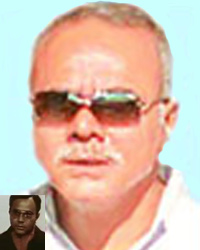 Colonel (Rtd.) Syed Farooq Rahman ()
Colonel (Rtd.) Syed Farooq Rahman () 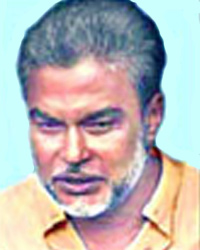 Colonel (Rtd.) Sultan Shahriar Rashid Khan ()
Colonel (Rtd.) Sultan Shahriar Rashid Khan () 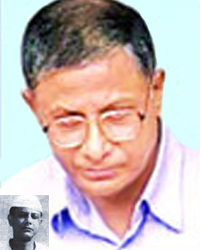 Major (Rtd.) Bazlul Huda ()
Major (Rtd.) Bazlul Huda () 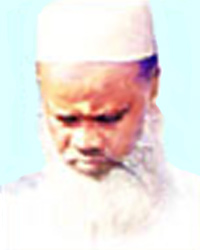 Major (Rtd.) A K M Mohiuddin ()
Major (Rtd.) A K M Mohiuddin () 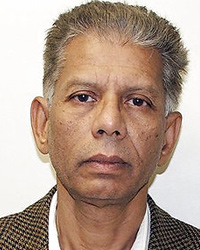 Lt Col (Rtd.) Mohiuddin Ahmed ()
Lt Col (Rtd.) Mohiuddin Ahmed ()
Last ditch mercy petition to President to save life
Early in January 2010, prior to the Supreme Court's verdict, Bazlul Huda, A K M Mohiuddin and Mohiuddin Ahmed wrote to President Zillur Rahman pleaing for mercy as a gesture of kindness but they were rejected. Post the November verdict, Syed Farooq Rahman too appealed to President Zillur Rahman asking for leniency and seeking a review of his death penalty. His mercy petition was sent through the prisons authorities to the Home Ministry who sent it to Prime Minister's Office from where it was forwarded to the President.
It was rejected outright.
The petition was received and despatched by the home and law ministries virtually within minutes as all relevant top civil servants were present there in the minister's office.
It was merely a matter of signing a piece of paper and handing it to the person across the table.
Prodip Choudhury, journalist
By seeking a review of their death penalties the four convicts had exhausted their last legal option. The only death row convict not to petition for Presidential mercy was Sultan Shahriar Rashid Khan.
My father was a freedom fighter; and a man who fights for the independence of his country never begs for his life.
Shehnaz Khan, daughter of Shahriar Rashid Khan
Our fight was for establishing the rule of law and justice, not envy, and we got justice.
Anisul Huq, Chief State Counsel
On the day of hanging...
Jail officials had telephoned the relatives of the convicts and asked them to come to Dhaka Central Jail immediately to meet the death row convicts for one last time before they were executed. A total of 61 close relatives came including the son of one of the convicts was brought from suburban Kashimpur Central Jail where he himself was detained. In a departure from regular practice, the convicts were allowed to remain with their families well into the evening, until about 8.00pm
We had hints that the end was near, particularly when the relatives of the five men were asked to come and meet them with hardly any notice.
The authorities had told the immediate families that there were no limits on the number of relatives who could come, and they were allowed to remain with them until well after visiting hours. We knew that the final hours had come.
Mahfuz Anam, Editor of The Daily Star newspaper
Once the families left, the five men were sent to their cells. They were told to take a bath and to offer their night prayers.
Civil surgeon Dr Mushfiqur Rahman, Dhaka's District Magistrate and Deputy Commissioner Zillur Rahman and additional district magistrate Avijit Sarkar entered the jail before midnight along with Inspector General of Prisons Brigadier General Ashraful Islam Khan as their presence were required during the hanging. Home Secretary Abdus Sobhan Sikder and Dhaka Metropolitan Police Commissioner AKM Shahidul Hoque arrived at the jail after 10:00pm.
Dr Mushfiqur Rahman and two other doctors conducted medical check-ups of the five convicts. Then the guards asked them if they wanted to eat anything special. A cleric came, offering to read from the Qu’ran. Earlier, the two gallows beside the condemned cells in the jail were prepared for the execution. The compound was brightly lit by floodlights
Police vans arrived 11.00pm carrying five wooden coffins while another private van came to the scene with two wooden bedsteads which were likely to be used to for ablution of the bodies after the execution.
The authorities had taken up a three-layer security measure for the execution. Elite anti-crime unit Rapid Action Battalion (RAB) troops, armed police battalion and plain clothes men took positions around the jail complex providing support to the regular police force to prevent demonstrations. Vehicular movement was restricted on the road in front of the jail gate. In addition, law enforcement and intelligence agencies were kept alert across the country to avert any suspecting incident.
Hanged by neck
The process to execute the assassins of Sheikh Mujib, the father of Prime Minister Sheikh Hasina, began few minutes after midnight and ended in 40 minutes time.
Syed Faruk Rahman and Sultan Shahriar Rashid Khan were the first two to walk the gallows at 12:05am. They were handcuffed and their heads were covered in black hoods. Two hangmen put two nooses around the necks of the two condemned killers. Two other hangmen - Hafiz and Mohammad Shahjahan - were ready to pull levers to slide apart the scaffolds. Dhaka Jail Superintendent Touhidul Islam dropped a red handkerchief from his hand to signal for the executioner to proceed. The two chief hangmen pulled the levers.
Sultan Shahriar and Farooq were kept hanging for half an hour to confirm their death.
Mohiuddin Ahmed and Bazlul Huda were executed about a half hour later in similar fashion. Finally, AKM Mohiuddin was executed a few minutes after 1.00am.
With that momentous act turned the page on a black chapter of brutality lingering for 34 years.
The executions have pulled the curtain finally down on one of the history's most gruesome killings.
Mahbube Alam, the Chief State Attorney
Bodies sent to ancestral graves
The bodies were handed over to the families and for burial in their ancestral homes.
The bodies of the five were sent to their village homes by five ambulances by 3:30am under police and RAB escort after conducting post mortem.
Touhidul Islam, Dhaka Central Jail Superintendent
Six still wanted + 1 dead
Of the remaining seven, one died (Abdul Aziz Pasha) and six are fugitives from justice in foreign lands. The government so far has no specific information on the location of the six fugitives.
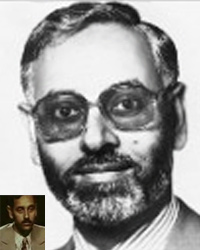 Lt Col (retd) Khandaker Abdur Rashid () Allegedly hiding in Pakistan.
Lt Col (retd) Khandaker Abdur Rashid () Allegedly hiding in Pakistan.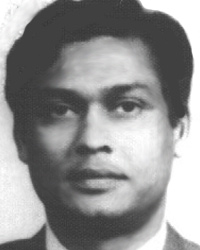 Lt Col (retd) Shariful Haque Dalim () Allegedly hiding in Canada, Libya or Pakistan.
Lt Col (retd) Shariful Haque Dalim () Allegedly hiding in Canada, Libya or Pakistan.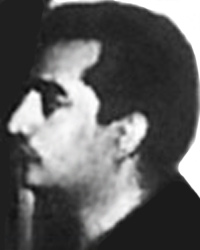 Capt (retd) Abdul Majed () Allegedly hiding in Kenya. Interpol officials said they conducted a drive called Operation Infra-Red 2010 from May 3 to July 15 and gathered information that Abdul Mazed was staying in either India or Pakistan.
Capt (retd) Abdul Majed () Allegedly hiding in Kenya. Interpol officials said they conducted a drive called Operation Infra-Red 2010 from May 3 to July 15 and gathered information that Abdul Mazed was staying in either India or Pakistan.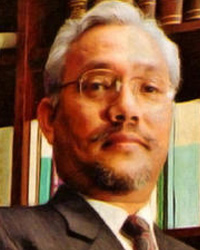 Lt Col (retd) S H B M Nur Chowdhury () Allegedly hiding in US.
Lt Col (retd) S H B M Nur Chowdhury () Allegedly hiding in US.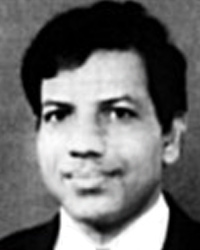 Risaldar Moslehuddin Khan () Allegedly hiding in Thailand.
Risaldar Moslehuddin Khan () Allegedly hiding in Thailand.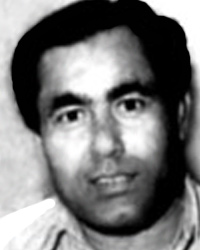 Lt Col (retd) A M Rashed Chowdhury () Allegedly hiding in South Africa or Los Angeles, US.
Lt Col (retd) A M Rashed Chowdhury () Allegedly hiding in South Africa or Los Angeles, US. Abdul Aziz Pasha () Passed away in Zimbabwe in June 2001.
Abdul Aziz Pasha () Passed away in Zimbabwe in June 2001.
The government is hopeful that it will be able to execute the convicts after bringing them back to the country.
Saida Muna Tasneem, director general (external publicity wing) of the foreign affairs ministry
Key figures
 Supreme Court of Bangladesh ()
Supreme Court of Bangladesh ()  Bangladesh Police ()
Bangladesh Police ()  Justice Mohammad fazlul Karim ()
Justice Mohammad fazlul Karim ()  Justice Mohammad Ruhul Amin ()
Justice Mohammad Ruhul Amin ()  Justice A B M Khairul Haque ()
Justice A B M Khairul Haque ()  Judge Mohammad Kazi Golam Rasul ()
Judge Mohammad Kazi Golam Rasul ()  Justice Mohammad Tafazzul Islam ()
Justice Mohammad Tafazzul Islam ()  Chief State Counsel Anisul Huq ()
Chief State Counsel Anisul Huq ()  Attorney General Mahbubey Alam ()
Attorney General Mahbubey Alam ()  Mahitul Islam () resident personal secretary to President Mujibur
Mahitul Islam () resident personal secretary to President Mujibur Barrister Abdullah-Al Mamun () lawyer for two convicts
Barrister Abdullah-Al Mamun () lawyer for two convicts ()
()
